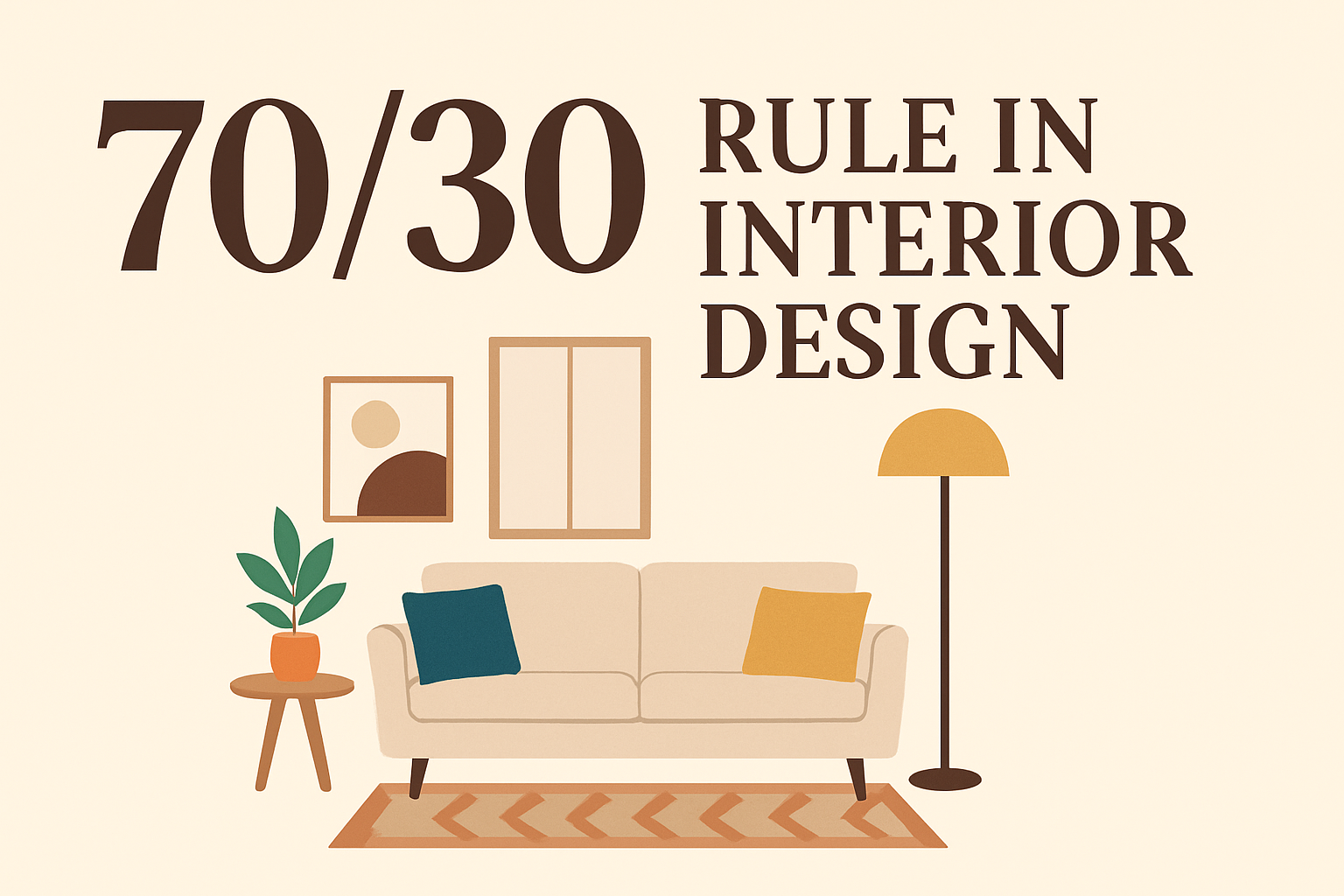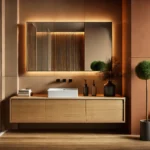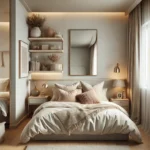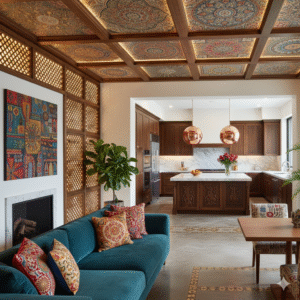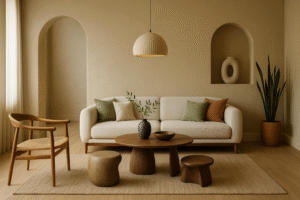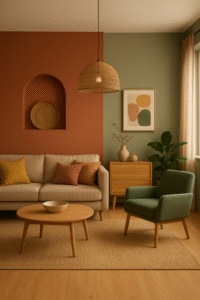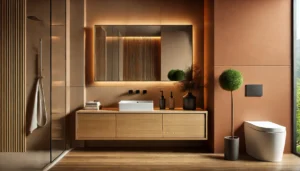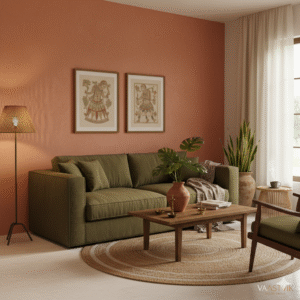When it comes to creating stylish yet practical interiors, balance is everything. One simple principle that professional designers often rely on is the 70/30 rule in interior design. This rule helps homeowners and designers achieve harmony between dominant and accent elements, ensuring that every room feels cohesive but not boring.
In this blog, we’ll break down what the 70/30 rule is, why it works, and how you can apply it to your own home interiors.
What is the 70/30 Rule in Interior Design?
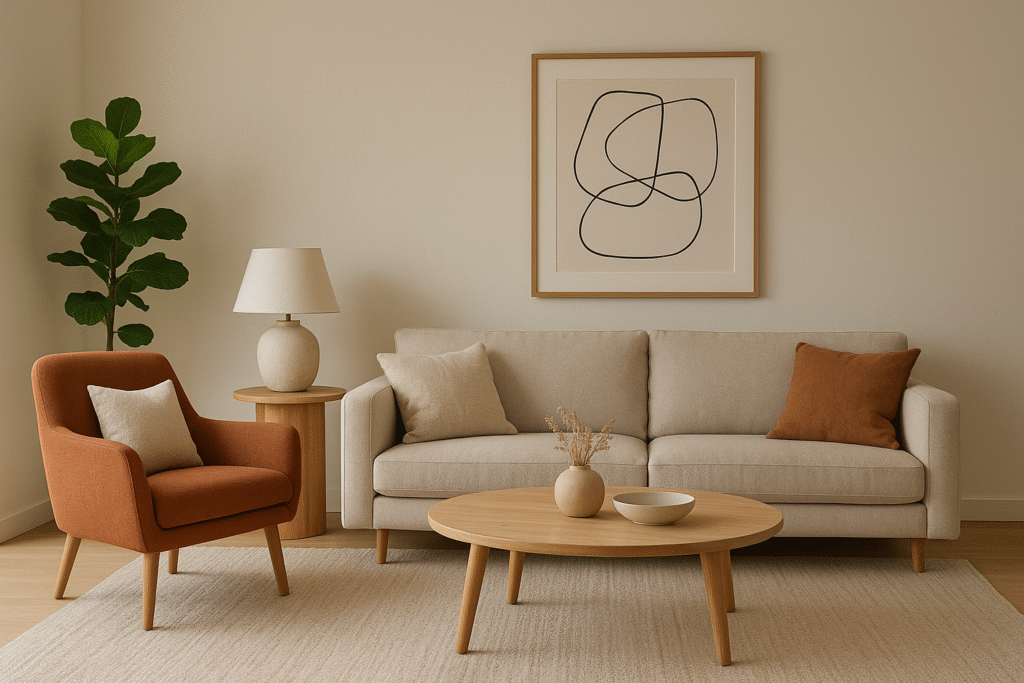
The 70/30 rule for interior design:
- The main design style, color scheme or material of your room should account for 70% of your room.
- 30% of your space should have great contrasting quality character accents.
This no-brainer ratio ensures that interiors remain easy on the eyes. There are too many similarities and you want to create difference.’ And, she added, ‘Too much sameness is dull; too much difference and it’s chaotic.’ The 70/30 rule is just right.
Why Does the 70/30 Rule Work So Well?
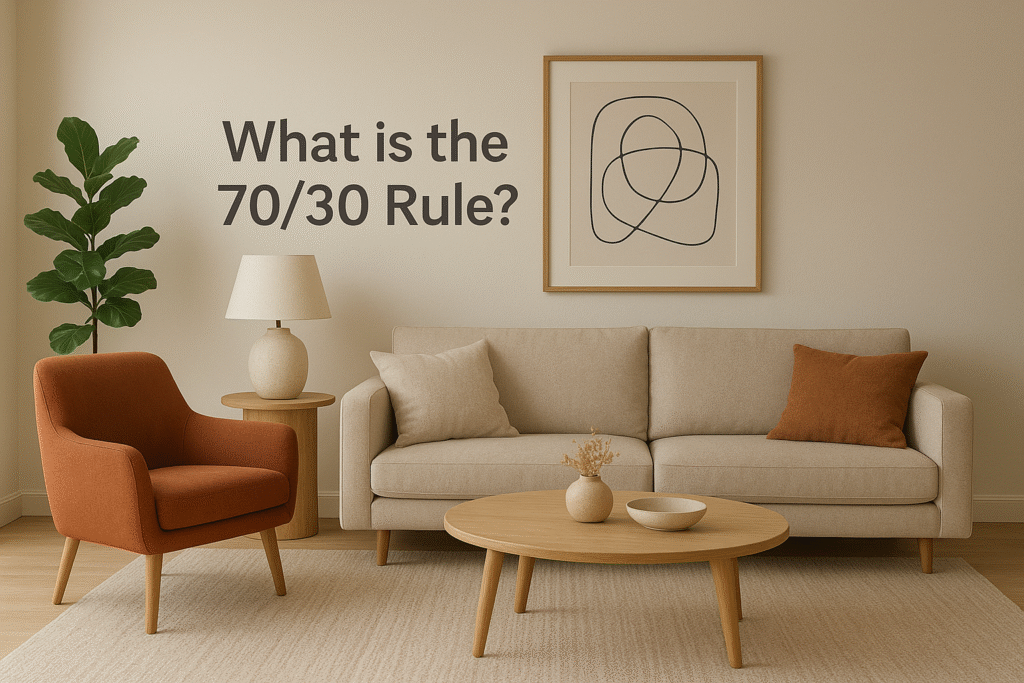
Our eyes like structure but also demand a little surprise.
- 70% dominance brings order, smooth movement, and a knocked back calmness.
- Contrast 30% Colour adds excitement, movement and individuality.
Think of it as cooking: the ingredients (70%) provide the substance, and spices (30%) add the flavor. You need both to enjoy it.
How to Apply the 70/30 Rule in Your Home?
1. Colors
- 70%: Use a dominant neutral (white, beige, or grey).
- 30%: Add bold colors like emerald green, navy blue, or terracotta in cushions, rugs, or accent walls.
2. Furniture
- 70%: Stick with one primary style (modern, minimal, or traditional).
- 30%: Mix in statement pieces like a vintage chair, a carved wooden coffee table, or a quirky side stool.
3. Textures & Materials
- 70%: Choose one main material (wood, marble, or metal).
- 30%: Add contrasting textures such as velvet upholstery, woven baskets, or glass accents.
4. Lighting
- 70%: Use functional lighting (recessed lights, ceiling lamps).
- 30%: Add decorative lighting—chandeliers, pendant lamps, or wall sconces.
Example: Living Room with the 70/30 Rule
Picture a modern living room:
- 70%: Plain neutral sofa, minimalist TV unit, bare white walls.
- 30%: Whimsical patterned pillows, a colorful rug, houseplants and a brass lamp.
The result is a space that’s modern but approachable, balanced but full of life.
Pro Tips for Using the 70/30 Rule
- Don’t stress about the exact percentage—it’s about proportion, not precision.
- Update your 30% accents seasonally. Use lighter shades in summer and deeper tones in winter.
- Make your 30% personal. Add art, travel souvenirs, or handmade décor items to reflect your personality.
Final Thoughts
The 70/30 rule in interior design is a timeless trick for creating balanced, stylish interiors. By letting one style dominate (70%) and another complement it (30%), you can achieve a home that looks professional yet feels personal.
So next time you style a room, remember this simple equation: 70% balance + 30% personality = 100% perfect design.
For more inspiration on interior designing, check out our latest blog on TV Unit Design Inspiration For Your Home 2025
We are the Best Interior Designers in Noida & Greater Noida! Call us Now for interior design
Call : +918287313108 ( Archit Rathi )
Connect with us on our Social Media handles!
Instagram : @vaastvikdesigngroup2.0 Facebook : @vaastvikdesigngroup Youtube : @vaastvikdesigngroup2.0

